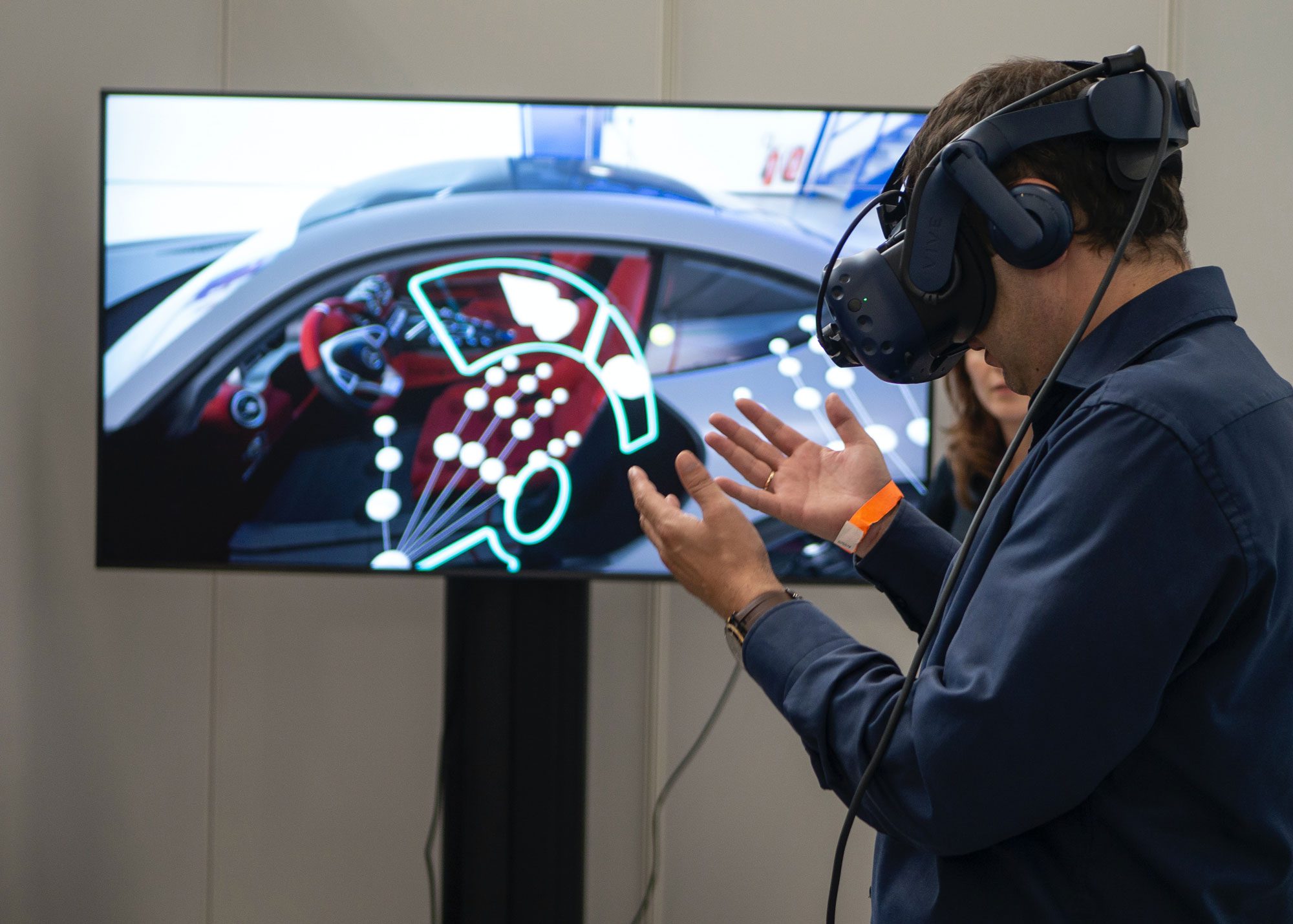Is Augmented Reality The Next Best Thing In Marketing?

Thinking of transforming your business experience using AR or VR?
With virtual reality supposedly becoming the next big thing, it seems to be that augmented reality may become more popular because businesses are already starting to implement this into their digital marketing strategies. For example, IKEA, now has an app called IKEA Place app which allows people to place a piece of furniture in their room to see how it will look. This prevents customers from buying a product then return it. This is a great way to create customer engagement while also showing people they are trying to provide the best service and experience with their business to make every customer satisfied, and reached the #2 spot as an Apple ARKit app.
AR focuses more on virtual enhancements through apps and mobile then mixing it with existing reality whereas VR can create its own reality, mainly for entertainment purposes. If we look at Pokemon Go – it was very popular once but died down quickly. Even though the trend for VR and AR is expected to rapidly grow a lot by 2020, people are still unsure about the future of its success and how long this success will last incase it turns into a fad like Pokemon Go.
Apple recently has announced the iPad pro which displays the augmented reality capabilities of the device. Being able to combine augmented reality with devices we use daily means there is potential for it to become part of our everyday lives however, virtual reality has less chance because not everyone is going to buy expensive headgear purely for entertainment.
Since AR is starting to be designed into our apps and technology let’s take a look at some of the main pros and cons of augmented reality technology in your marketing strategy:
Advantages of Augmented Reality in Marketing
Improved personal interaction and experience
Users will be able to feel more involved with a business because it can personalise content to suit individual needs, making it a more involved and exciting experience. When looking at a clothing retail business since most people shop online now, augmented reality could really improve a person’s overall experience and assist in their choices by providing a personalised experience, for example, through an app that allows people to see what they look like in specific clothing before they buy.
The mobile use giving endless opportunities
Since people are always on their mobiles the opportunities for augmented reality could really change the world of marketing especially with the use of apps on mobile devices. Augmented reality could really change the way we do things in life. For example, it can create easy and interactive training procedures for businesses to train employees. This also takes away the time it would taken a person to train someone increases productivity. Also think of how it would benefit education purposes: in schools, augmented reality would be a great interactive way to get kids to learn and actually pay attention.
Grabs the attention you want
Besides putting a look of amazement on your customer’s face, from a marketing perspective, AR will distinguish your business from others since it’s still a fresh trend with very little businesses using it (yet). It will give you a competitive advantage by providing an entertaining and personalised experience. Retailers specifically can really benefit from augmented reality by making their customer’s experience better (as mentioned above with the IKEA Place app). Specsavers has also caught on and is receiving the desired attention for their efforts. There app allows users to scan their face then try on different glasses to see which pair suits so when they go into store they already know which pairs they liked best. Say you were deciding to buy a new couch between two stores, one had an AR app to help you make the right choice and the other didn’t leaving you to guess if it will suit the walls and decor in the room, which would you chose?
Meets the needs of people
With people becoming more digital and expecting technology to improve and better serve the needs of consumers, we can see augmented reality really has the potential to give people what they want: just-in-time information, personal interaction, convenience and the right visuals; to name a few. A study in the US showed 72% of consumers said they had brought products they hadn’t planned on because of augmented reality. This is because It keeps people’s attention for longer while providing enjoyment. So it is definitely something that could really change how we shop in the future.
Disadvantages of Augmented Reality in Marketing
Now to look at the other side of the coin:
It can be costly
Depending on the type of app you are hoping to achieve, the price will vary. However, most businesses presume they are risky and expensive to implement, so the question is: is it worth it? Since the technology is developing and new it is expensive to use for everyday life and can be less attainable for small businesses. Some people still don’t see the value in it but so you need to ask yourself is the cost worth the potential success of your business?
Does AR fit into your business?
Will your audience respond to it? Augmented reality helps create better productivity and customisation but there no point investing in augmented reality if it won’t fit your business. Take a look at an interior designer, being able to decorate a client’s room using technology to show them the end result before starting the project can really benefit that kind of business by creating less risk paying for the service and then not liking it. Same with furniture stores. Going back to the IKEA example, augmented reality is a great solution to help customers make the right decision and not have to go back and return products – Furniture isn’t exactly the easiest thing to carry around.
Now you have an idea of where the future of AR could be going, and the advantages and disadvantages of augmented reality technology for marketing, do you think it will become the next best thing?
Looking for more insights from the Glide Agency team? Check out our posts on 2020 Vision: Your Digital Strategy and The Secret Sauce to Building Brand Love.





